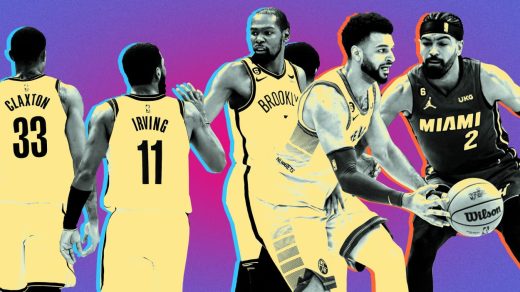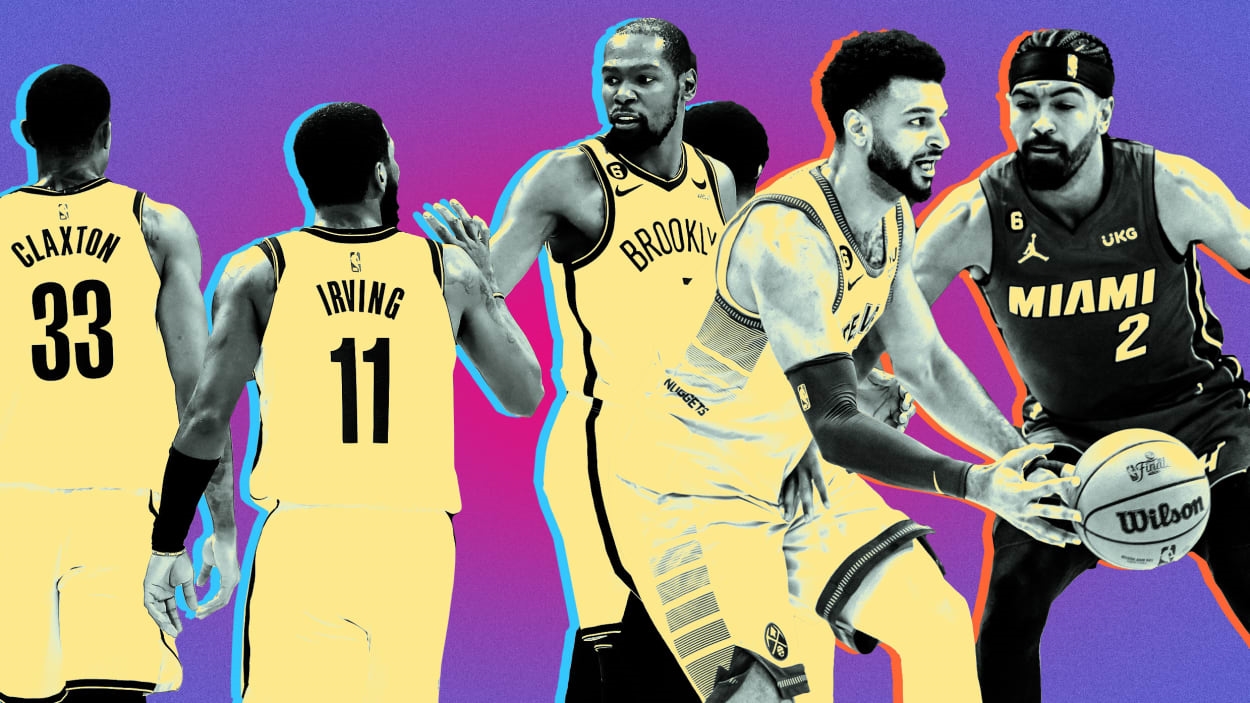The myth of the NBA superstar: Why pricey players often don’t deliver championships
By Drew Millard
When the clock struck midnight a couple nights ago and June became July, one NBA Collective Bargaining Agreement—the agreement between the league’s players and their teams’ management dictating how NBA contracts, salary caps, trades, and more function—transitioned to another, bringing all sorts of changes to the granular details of roster-building that only basketball fans more numbers-oriented than I are equipped to explain.
Basically: The NBA’s salary cap is not hard and fast, and so most teams ignore it. In the past, if teams exceeded it by a certain amount, they would hit an “apron” that would trigger certain penalties. Too many teams ignored the implications of hitting that apron, so this new CBA introduces a second “apron” that introduces even harsher penalties that, if exceeded, will make a team cry—or at least render them unable to do fun stuff like sign free agents for more than a minimum contract, sign players whose contracts have been bought out by their previous teams, or make trades for players whose contracts exceed the value of the contracts they’re sending out.
The case for these new restrictions is that certain teams, like the Los Angeles Clippers and the Phoenix Suns, have deep-pocketed ownership groups who scoff at the salary cap and will basically spend whatever it takes to bring big-name players to their squads. Meanwhile, teams in smaller markets, or those with thriftier owners, simply can’t offer enough money to the top talent, missing out on big free agents and watching their would-be franchise cornerstones leave for bigger contracts elsewhere. Now, teams with less salary on the books will be empowered to spend money in ways that salary-rich teams can’t. The hope, then, is that the bad teams will get a little bit better and the good teams will get a little bit worse, with the players themselves getting paid more in the process.
The most immediate ramification is that, as of today, it’s officially harder for teams who already like spending money to spend even more money to bring in a big-name player. Which is why, in the past few post-championship weeks, we’ve seen the Washington Wizards trade away its big-money, small-results core away for draft picks and young talent; multiple news cycles’ worth of trade rumors involving the Portland Trail Blazers’ superstar point guard Damian Lillard; and poor Chris Paul being on three teams in the span of a week. The problem with all this wheeling and dealing, though, is that jamming the best possible players into a locker room together is only a recipe for success in NBA 2K or a fantasy basketball league. Instead, we exist in reality, where things are much more complicated.
There are so many factors that determine whether someone’s going to excel at their job that have nothing to do with their inherent level of talent. People like to feel valued by their organization and respected by their boss. They want to get along with their coworkers and often develop meaningful mentor-mentee relationships. They want to like the place they live in. Depending on their personality, they might want to lead or to be led. They want opportunities to advance personally, while building towards something greater as a group. They want to feel like what’s being asked of them matches that which they want to do themselves. Just because somebody’s an NBA player making millions of dollars a year doesn’t make them immune to the same basic workplace psychology that governs us all. So why would we expect an NBA team to magically function differently?
Consider the Brooklyn Nets, whose attempt to cobble together a triumvirate of James Harden, Kyrie Irving, and Kevin Durant ended about as well as the one between Caesar, Pompey, and Crassus. Between various injuries to the three, as well as Irving’s refusal to get vaccinated for COVID-19 during the 2020-2021 season, the triumvirate ended up playing only 16 games on the court together before Harden requested out. For its troubles, the Nets won exactly one playoff series and lost three first-round draft picks. The trio’s breakup has had ramifications as well: Harden headed to Philadelphia to pair with Joel Embiid, where he’s failed to help the team advance beyond the second round of the playoffs and now appears poised to take his talents elsewhere; Durant left for Phoenix, where he did the same; and Irving joined Luca Doncic in Dallas, where he proceeded to drop 27 points a game while the team slid out of playoff contention. It’s not just that these three guys secretly suck and bring fresh hell onto any team they join—it’s just that these sorts of players are their own centers of gravity, requiring everyone else to adjust on the fly. That can be a challenge for anybody.
If you look at precedent, the teams that win it all usually value continuity over tinkering. After identifying Nikola Jokic as a unique talent and Jamal Murray as a complementary one, the Denver Nuggets have patiently built its roster with players that brought out the best in the pair—and vice versa—until the team was nearly unstoppable. Similarly, the Golden State Warriors spent years developing players like Steph Curry, Klay Thompson, and Draymond Green, building a team-first culture that helped it make the Finals five years in a row.
This approach takes patience, dedication, and the capacity to view a roster as a collection of individuals rather than a portfolio of assets. There are new provisions in the CBA that encourage this thinking by allowing teams to spend more to extend current players’ contracts than they would on signing or trading for a replacement. Similarly, players will now be able to own shares in teams, which might encourage them to view their careers as a single investment that grows over time. The idea of sticking with the same guys over and over again might be boring and a little maddening for a fan base, especially members of the vocal contingent who demand results now. But it’s important to remember that almost every member of an NBA roster is there because he’s one of the best basketball players in the world. Sometimes it’s wisest to find a star not by switching things around, but instead by simply giving a chance to someone you’ve already got.
Drew Millard is the author of How Golf Can Save Your Life. His work has appeared in Vice, GQ, The Nation, The Believer, McSweeney’s, and the New York Times Magazine.
(9)



